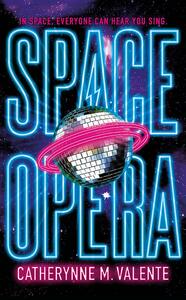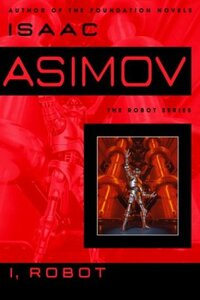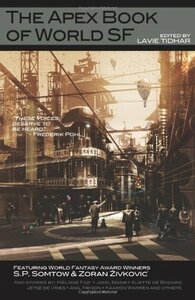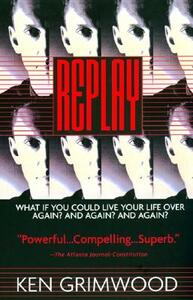You need to sign in or sign up before continuing.
Take a photo of a barcode or cover
matt_bitonti's Reviews (227)
lighthearted
medium-paced
Plot or Character Driven:
Character
Strong character development:
No
Loveable characters:
Yes
Diverse cast of characters:
No
Flaws of characters a main focus:
Yes
Of all the works of Asimov, this book is set chronologically the earliest, and those endeavoring to go from start to finish (through the Foundation series), should start here, before moving on to "The Complete Robot." This is the task I would like to complete this summer, re-read all the Asimov. And so it begins.
I, Robot is a collection of short stories, all set in a future where robots were discovered in the late 20th century. These stories are primarily exercises which test the limits of the famous 3 laws of robotics, and the edge conditions and anomalies that emerge along the way. Asimov uses the gruff character of Dr. Susan Colvin to link these disparate short stories together into a single narration. She's cold, the robots are cold, and she's often the only one who can divine an explanation when they act oddly.
The journey of progress Asimov takes the reader upon is truly staggering. When the book opens, robots can't talk and they are marketed as children's nannies, communicating to their brood through mime. By the time I, Robot concludes, about a century of calendar time later, the entire globe is united under the benevolent guidance of "The Machine," a brain that was built by robots and exceeds the comprehension by humanity. Along the way, the ability to travel through hyperspace is discovered, and robots have a key role to play in that as well.
I, Robot is a collection of short stories, all set in a future where robots were discovered in the late 20th century. These stories are primarily exercises which test the limits of the famous 3 laws of robotics, and the edge conditions and anomalies that emerge along the way. Asimov uses the gruff character of Dr. Susan Colvin to link these disparate short stories together into a single narration. She's cold, the robots are cold, and she's often the only one who can divine an explanation when they act oddly.
The journey of progress Asimov takes the reader upon is truly staggering. When the book opens, robots can't talk and they are marketed as children's nannies, communicating to their brood through mime. By the time I, Robot concludes, about a century of calendar time later, the entire globe is united under the benevolent guidance of "The Machine," a brain that was built by robots and exceeds the comprehension by humanity. Along the way, the ability to travel through hyperspace is discovered, and robots have a key role to play in that as well.
The Apex Book of World SF
Yang Ping, Lavie Tidhar, Jamil Nasir, Kaaron Warren, Anil Menon, Nir Yaniv, Zoran Živković, S.P. Somtow, Mélanie Fazi, Aliette de Bodard, Dean Francis Alfar, Han Song, Guy Hasson, Jetse de Vries, Tunku Halim, Aleksandar Žiljak, Kristin Mandigma
Several great short stories, some more horror or fantasy than science fiction. Aliette de Bodard had a page turner. My favorite was the Alexander Ziljak, which is also available through their magazine for free:
http://www.apex-magazine.com/an-evening-in-the-city-coffeehouse-with-lydia-on-my-mind/
http://www.apex-magazine.com/an-evening-in-the-city-coffeehouse-with-lydia-on-my-mind/
Excellent nostalgic tales about the summer time, not sure how it fits into the genre of science fiction, like the rest of Bradbury's tales. But it was enjoyable nonetheless. He has a way of describing settings and characters that make the reader feel like he or she is really there. I've never drunk the Dandelion Wine, but I know how it tastes: like a thousand summers gone by.
Primarily I'd like to critique "The Other Foot." Which seems like a progressive story on the surface but it's actually rife with uncomfortable suppositions and conclusions. First off, it breezes right by the decision to eject all black people (or is it just black Americans) from the planet Earth. That probably wasn't a fun time for anyone. How did that process work, exactly? Take an entire ethnic group, round them up, load them into rockets and shoot them off to Mars? I'm sure they were all so happy to be exiled from the green Earth, sent to a rugged wasteland and have to build from scratch. Then, a couple decades later, the Martians accept the old Earth man without revenge. Sure, they had revenge instincts at first but are talked out of it by the news that everything is destroyed. This is not good news. It's like not only did the Earth kick all the blacks off the planet, then the same geniuses who made that decision, ruined the planet. The Martians not only forgive this man but claim to understand him and welcome all the other Earth refugees as equals? It's a nice thought but for the citizens of Mars to just dissolve their mob, accept the man and forgive him, it's unrealistic. That's not how mobs work. It's almost like Ray Bradbury is implying that the Martians are a higher, more noble evolution of human. Which might make sense if there was more than 20 years between the exile and the war. Let's be real, the real way this would actually go is the Martians would tell the old Earth man to go screw himself. But it raised questions and made me think which is why this book is worth reading.









